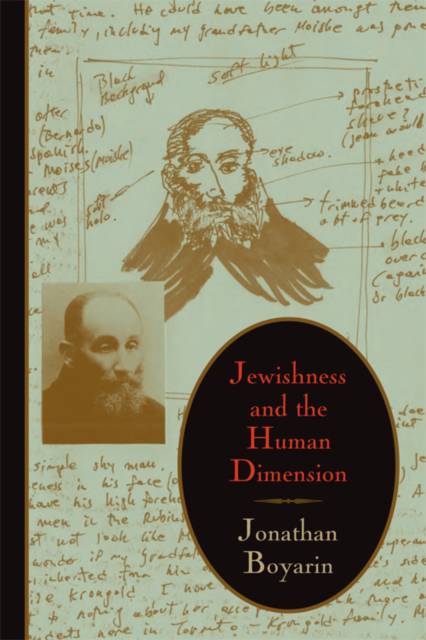
Bedankt voor het vertrouwen het afgelopen jaar! Om jou te bedanken bieden we GRATIS verzending (in België) aan op alles gedurende de hele maand januari.
- Afhalen na 1 uur in een winkel met voorraad
- In januari gratis thuislevering in België
- Ruim aanbod met 7 miljoen producten
Bedankt voor het vertrouwen het afgelopen jaar! Om jou te bedanken bieden we GRATIS verzending (in België) aan op alles gedurende de hele maand januari.
- Afhalen na 1 uur in een winkel met voorraad
- In januari gratis thuislevering in België
- Ruim aanbod met 7 miljoen producten
Zoeken
Omschrijving
Jewishness and the Human Dimension is a leading scholar's progress report on an effort to bring Jewishness broadly construed into dialogue with a wide range of thought in contemporary criticism, while linking those themes in turn to the question of planetary crisis.
Each chapter emerges from and addresses the circumstances of its composition; a talk to New Jersey undergraduates inviting them to contemplate their lifespans vis-à-vis the life history of the species; a meeting to contemplate Jewish memory outside Europe and after 1945; an inaugural address as the author sought to make sense of leaving his home on the Lower East Side and making a new one in Kansas. Two chapters on research and teaching in Jewish cultural studies as academic practice develop the notion of Jewish studies as a human science and examine how Jewish historiography, once a deeply conservative discipline, has integrated insights from anthropology and literary cultural studies. Boyarin also shares a dialogue with the Jerusalem-based physicist Martin Land on physical and cultural ideas of futurity and redemption. The book ends with a stark challenge to those who work in the contemporary humanities and social sciences: in order to be able to contribute to the possibility of sustained human life on Earth, we need to interrogate rigorously now the status of human differences. Neither ethnography (though it relishes the particular), memoir (though a personal voice is readily audible), nor criticism (though the work and figures of Jacques Derrida and especially Walter Benjamin are indispensable to its project), this book attempts to put in place words of the late Moishe Fogel, vice president of the Eighth Street Shul, that have long stood as a watchword for the author's writing: "Everything what you know you gotta use!"Specificaties
Betrokkenen
- Auteur(s):
- Uitgeverij:
Inhoud
- Aantal bladzijden:
- 144
- Taal:
- Engels
Eigenschappen
- Productcode (EAN):
- 9780823229239
- Verschijningsdatum:
- 17/11/2008
- Uitvoering:
- Paperback
- Formaat:
- Trade paperback (VS)
- Afmetingen:
- 140 mm x 213 mm
- Gewicht:
- 204 g

Alleen bij Standaard Boekhandel
+ 112 punten op je klantenkaart van Standaard Boekhandel
Beoordelingen
We publiceren alleen reviews die voldoen aan de voorwaarden voor reviews. Bekijk onze voorwaarden voor reviews.









